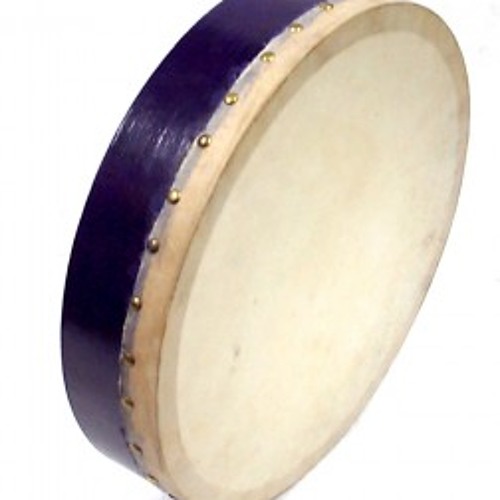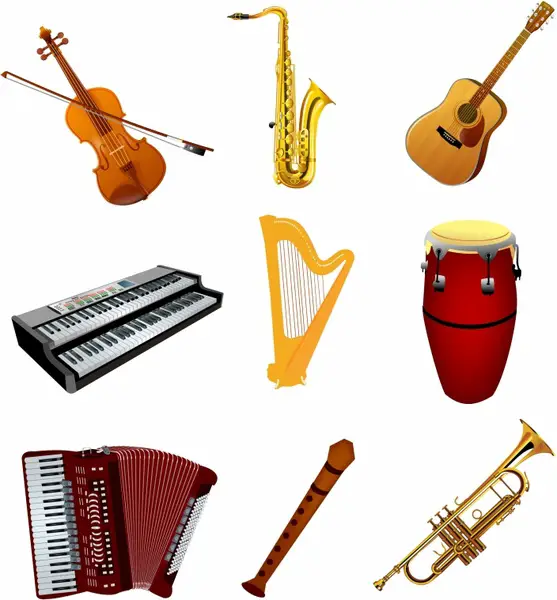Music evolves every decade and over the centuries humans found different ways to modify it. People usually listen to music to elevate themselves. However, musical modifications have caused significant controversies.
So, Is Music Halal or Haram In Islam?

According to most Islamic scholars playing or listening to music is prohibited (Haram). It includes rap, pop, and rock which are not acceptable. This music contains nudity, objectification of innocent children and women, violence, and filthy language. Also, modern music is vulgar and associated with satanic rituals.
Are There Any Exceptions In Music?
In Islam, musical exceptions include religious songs like Nasheeds. They are permissible for some scholars. Most scholars are against listening to those Nasheed songs in which Muslims play musical instruments. Only a handful of modern scholars consider them acceptable since there is no vulgarity, curses, or insults.
What About The Grey Areas In Music?
Religious songs or Nasheeds are considered grey areas. For example, the hand drum or Duff is allowed in Islam. It existed at the time of the Prophet (SAW),
However, the modern version of the Duff is the drum. Many scholars debate the use of the drum in religious Nasheeds.

Types Of Music In Islam
However, there are two kinds of music, good and evil music. Music has power and can control our emotions, thinking, movement and action to a great extent.
People get lost in sound. The Muslim community (Ummah) should focus on ideas and innovations. Sadly, this will not happen when Muslims fill their heads, souls, and hearts with musical sounds.
Music, Dancing, Singing, And Gender Separation

Playing music, dancing, and singing in front of opposite sexes is not permissible (Haram) in our religion.
Islam claims that the unnecessary mixing of the genders is the beginning of chaos.
Our last Prophet Mohammed (SAW) had no issue with music, dancing, and singing if there were no drinking and mixing of genders.
However, keep in mind that there is a limitation. Sexualized dancing within same-gender gatherings is unacceptable in Islam and other religions.
Dancing For The Devil
Demonic dancing has always been a phenomenon but has become public knowledge only in recent decades.
Rituals and dance steps exist to honor the devil (Shaytan) in a satanic cult.
Authentic scholars of various sects strictly oppose satanic dancing, singing, and over sexualized movements in meetings where the sexes are not separated.
Islam regards singing for demonic worship or lyrics as objectifying the human body and promoting filth and sin.
Demonic Songs

Today, the songs sung by big celebrities honouring demons and the devil are mainstream in the media.
They brainwash and negatively affect adults and children alike. Demonic songs corrupt morality and destroy the human character.
Children worship their idols or singers and blindly accept whatever they encourage.
For example, people did not promote homosexuality in the previous centuries.
Today, movies and songs routinely display Gay behaviours, and celebrities endorse the normalization of LGBTism.
Normalization in the media has contributed to the continued legalization of homosexuality in many countries.
Music – The Quran Of The Devil
Many scholars consider the music to be the Quran of the Devil. Evil-inspired singing has no place in the sight of Allah (SWT).
Angels will not enter a house filled with the sound of devilish music.
Moreover, listening to filthy music opens the door for Satan to take refuge in the human body.
Music – The Tool Of The Devil
In recent years, the devil has enslaved human beings and many Muslims. Many people do not understand that listening to music can become an addiction.
Songs filled with filthy lyrics are oversimplified, and people memorise them quickly.
Instead of the blessed words of the Quran, our hearts and minds become full of senseless noise and music.
Musical Frequencies And Effects On The Human Brain

As a Biologist, I have studied the brain activity influenced by music. Human nature and morality fluctuate according to the music one hears.
Melodious sounds and songs change our moods drastically. A happy person becomes sad. A depressed individual reaches a state of ecstasy, and lazy pupils become motivated.
Certain kinds of musical frequencies create violence and affect teenagers. (Smith; Boyson, 2002).
Music -The Brain Effects
Brain cells get activated to release a happy hormone called dopamine. Music has no language and is devoid of ideas, yet it can affect us and conquer our minds.
Music-Physical Effects
Music influences our physical bodies. The change in heart rate (UMEMURA & HONDA, 1998), fluctuation in brain waves (Ntalampiras; Potamitis, 2019), variation in hormones, dilation of pupil size, and many others are some of the notable changes that affect the human body.
Music-The Therapeutic Effect
However, many studies have proven that music can be therapeutic and lower depression in many populations.
Music has helped patients with stroke, enhanced brain activity, and increased social interaction in victims of traumatic depression. (Physical Medicine & Rehabilitation, Chang Gung Memorial Hospital, Taipei., n.d.).
However, there are just a few of the many reasons that make music the food for the soul. Spirituality concerning music is a never-ending debate.
Islamic Prohibition Of Musical Instruments

Several Quranic and Sunnah verses (Hadith) prohibit the use of musical instruments. Islam takes a firm stand against various musical instruments.
Scholastic opinions concerning playing with musical instruments vary.
The Holy Prophet once mentioned:
Almighty Allah has sent me as a mercy to the world and to guide the people. He ordered me to eradicate the playing of the flute, other instruments of music, all games of vice, idol (worship), and all practices of the days of ignorance.
(Mustadrakul 39; Chapter 79).
Islamic Permissibility- Angelic Music
Many scholars believe in the permissibility of angelic music. Each day of listening to it can motivate you to remember Allah (SWT) in life.
However, scholars differ in their opinions regarding the acceptability of playing instruments that produce such angelic music.
Muslims are at war with music. The community (Ummah) has failed to produce enough angelic music and has succumbed to the influences of lost to modern western demonic music long ago.
Islam is a final manifestation of the will of Allah, and it answers every question.
Angelic music calms you down. It creates a positive aurora, is simple, and never objectifies human beings nor encourages dance and lewd behaviour.
Musical artists such as Sami Yousef produce angelic music. Scholars consider this permissible (Halal).
Quranic Recitation – The Positive Effects

The melodious recitation of the Quran has a soothing effect on our souls.
Our Holy Quran is a beautiful book that has a civilizing effect on the human race more than anything.
As we recite the words of Allah (SAW), our hearts and souls melt.
In a famous speech, Sheikh Hamza Yousef said that spiritually the heart connects directly to the eyes and ears.
Both need to be protected.
Related Questions
Is It Permissible To Sing A Song Without Using A Musical Instrument?
It is permissible if the lyrics of songs are not filthy nor insulting towards the religion of Islam. However, most scholars agree that it is better to utilize free time in Quran recitation or learning other beneficial skills.
Is Playing A Musical Instrument Permissible (Halal)?
Two schools of thought exist. Scholars like Zakir Naik consider modern musical instruments impermissible (Haram) except for Duff and tambourine. He also quotes a saying (Hadith) in which Prophet (SAW) permitted to play these two. However, other scholars consider the modern musical instrument a precursor to conventional musical instruments used in Prophet Mohammed’s (SAW) era.
If it does not astray lead Muslims from the faith, then they are permissible to use.
Is Playing The Flute Permissible?
Some scholars consider all musical instruments as impermissible (Haram) except for a drum called the Duff and tambourine. However, a few scholars made playing of flute permissible if it does not cause any immorality or lead to distractions (Fitna).
References and Useful Links
Ntalampiras, S., & Potamitis, I. (2019). A statistical inference framework for understanding music-related brain activity. IEEE Journal on Selected Topics in Signal Processing, 13(2), 275–284. https://doi.org/10.1109/JSTSP.2019.2905431
Physical Medicine & Rehabilitation, Chang Gung Memorial Hospital, Taipei. (n.d.). Retrieved November 20, 2022, from https://www1.cgmh.org.tw/intr/intr2/c3390/en/music-therapy.htm
Smith, S. L., & Boyson, A. R. (2002). Violence in Music Videos: Examining the Prevalence and Context of Physical Aggression. Journal of Communication, 52(1), 61–83. https://doi.org/10.1111/J.1460-2466.2002.TB02533.X
UMEMURA, M., & HONDA, K. (1998). INFLUENCE OF MUSIC ON HEART RATEVARIABILITY AND COMFORT -A CONSIDERATION THROUGH COMPARISON OF MUSIC AND NOISEME-. Journal of Human Ergology, 27(1–2), 30–38. https://doi.org/10.11183/JHE1972.27.30

Microbiologist | Researcher | SEO Expert | Content Writer/Editor/Proofreader | Ghostwriter | HR Specialist | Tutor
Contact Author: Ayesha Hameed Khattak
